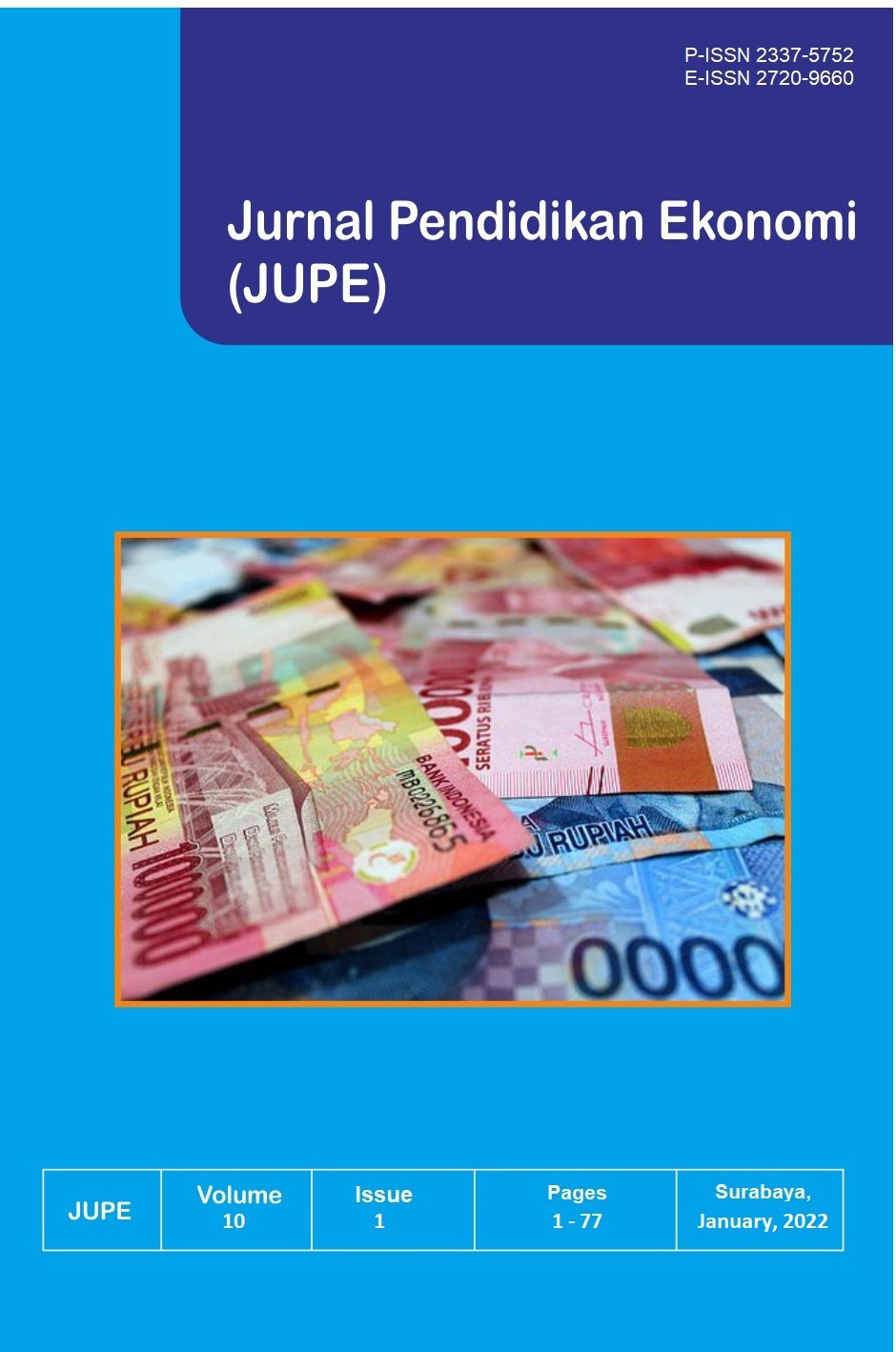Pengaruh Keterlibatan Akademik dan Kesiapan Digital Terhadap Prestasi Akademik Pada Pembelajaran Online
DOI:
https://doi.org/10.26740/jupe.v10n1.p9-14Keywords:
academic engagement, digital readiness, academic achievement, online learningAbstract
The aims of this study were to determine: (1) the effect of academic involvement on academic achievement in online learning; and (2) the effect of digital readiness on academic achievement in online learning. The COVID-19 pandemic that occurred in Indonesia had an impact on the education sector. Learning that was previously done face-to-face in class must be replaced with online learning. This research is a quantitative research using multiple regression analysis using SPSS software with a sample of 80 respondents. The sampling technique used is simple random sampling. The results of this study conclude that academic engagement does not have a significant effect on academic achievement in online learning and digital readiness does not have a significant effect on academic achievement in online learning. Therefore, academic engagement and digital readiness are not predictors of academic achievement in online learning.
Downloads
Downloads
Published
How to Cite
Issue
Section
License
Copyright
- Authors retain copyright and grant the journal right of first publication with the work simultaneously licensed under a Creative Commons Attribution License that allows others to share the work with an acknowledgment of the work's authorship and initial publication in this journal.
 Abstract views: 617
,
Abstract views: 617
, PDF Downloads: 778
PDF Downloads: 778











